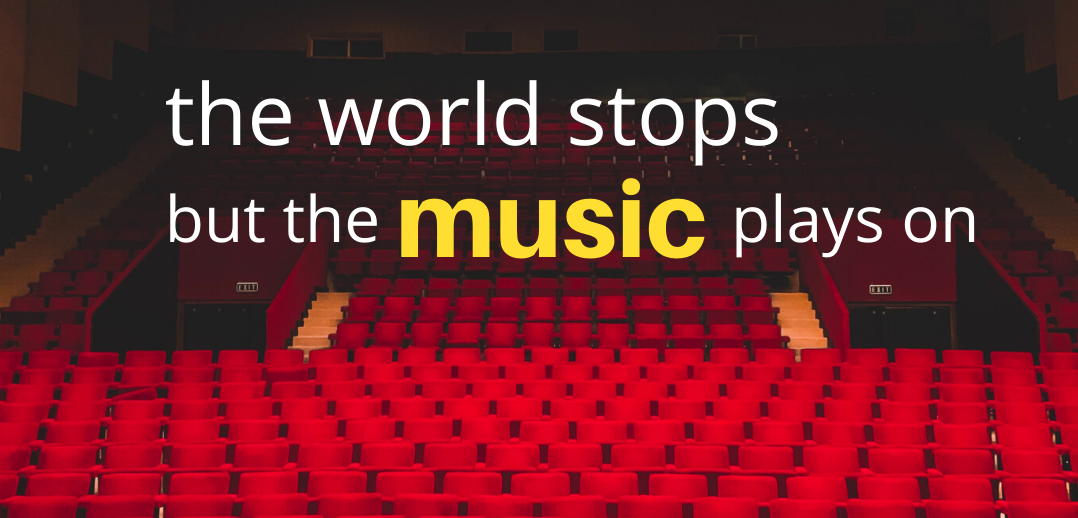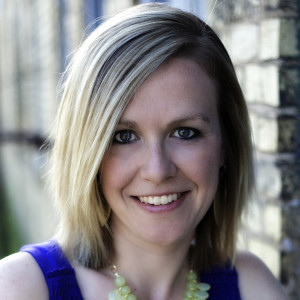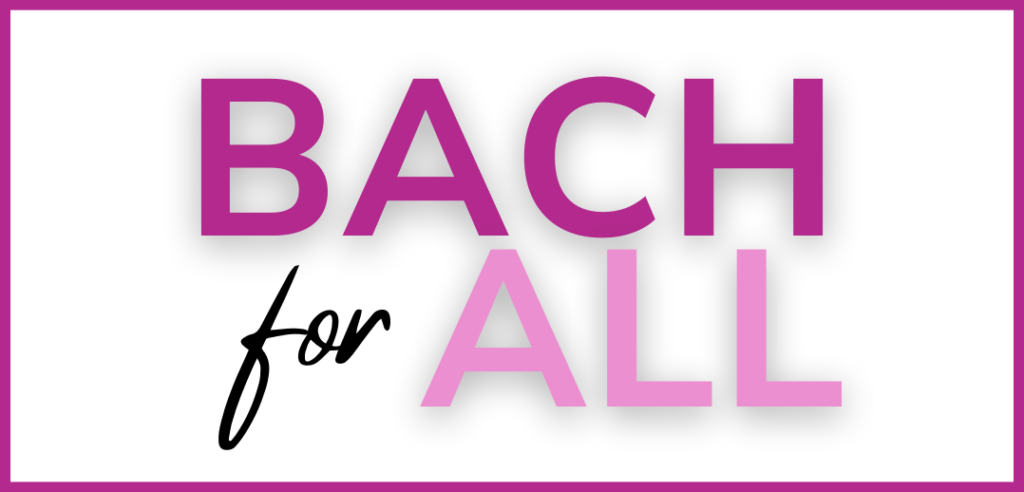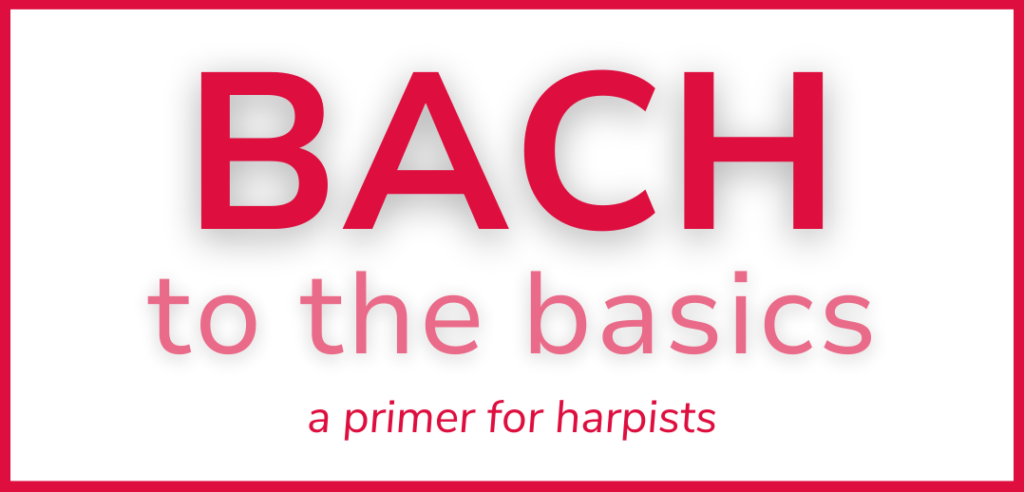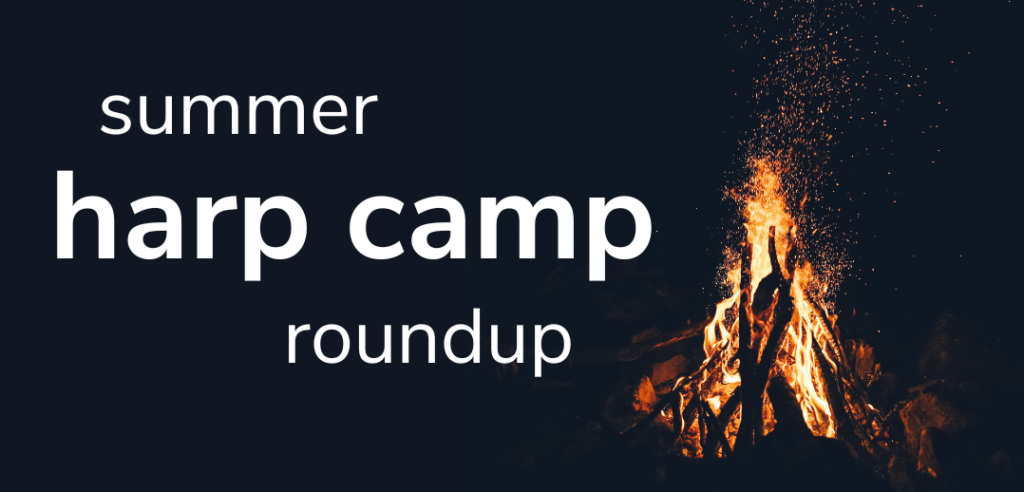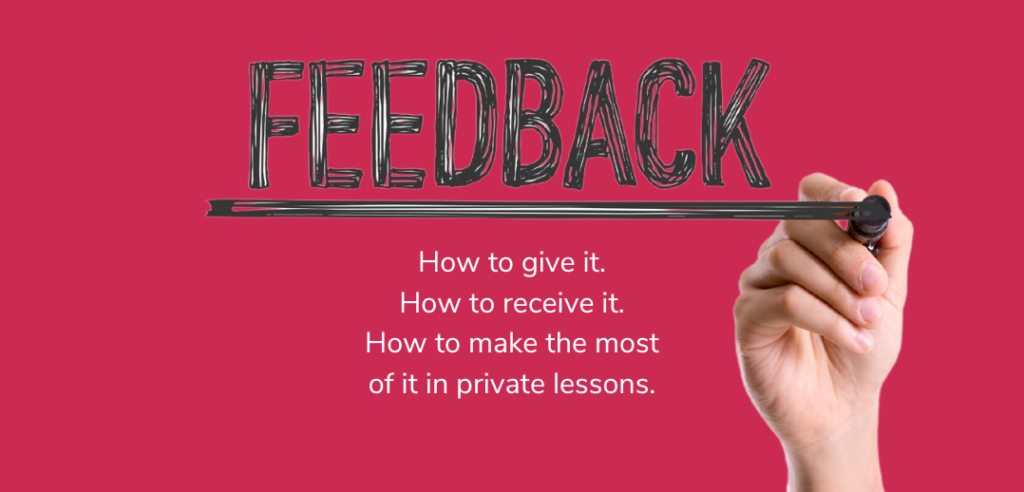On March 11, 2020, The World Health Organization (WHO) declared the coronavirus outbreak a pandemic. While the virus had already shut down China and a few other hot spots, almost immediately after the WHO’s announcement, the dominoes started to fall around the world as event organizers began heeding warnings about the risks of travel and large gatherings and canceling performances en masse.
Here at Harp Column, we immediately started hearing from harpists asking how to safely sanitize their instruments and wondering what social distancing meant for private lessons. On March 12, we published an article on our website with some recommendations for sanitizing harps (see “Navigating COVID-19 as a Harpist” on harpcolumn.com) and looked at some of those immediately affected by cancellations and travel restrictions. The closures, cancellations, and postponements have continued to pile up since mid-March, and the repercussions continue to be felt throughout every part of the harp community. (Scroll down to see how some larger harp events have responded.)
Tours
Michelle Gott, harp instructor at the University of Arizona, was in Iceland with her HarpFusion student ensemble when the United States banned all travel from Europe on March 11. The group, which included five harp students, two dancers, a video artist, and Gott, heard the news about travel restrictions at 1:30 a.m. March 12. “As soon as we heard the announcement, we started packing and went immediately to the bus station to head to the airport,” says Gott. “The airport is 45 minutes from downtown Reykjavik. The airport staff was very calm, but there were hundreds of people trying to reorganize flights. We were unable to get on an earlier flight, so I purchased a one-way ticket for one student who is on an F1 student visa to get her back to the U.S. [immediately].”
The rest of the group reassessed its options. The group was scheduled to give several performances during its remaining time in Iceland. “Although we tried to regroup, it was very difficult to do so after losing one of our group members,” Gott says. “In the end, it seemed wisest to let go of what the trip was supposed to be and just get everyone home safely.”
Gott adds that despite the profound disappointment of not performing concerts that the group had worked on for a year and a half, all was not lost. “The experience of creating our new show, fundraising together, and experimenting with new directions for HarpFusion were the gifts in this. We may not have had the chance to perform in Iceland, but we all grew through this process, which included the challenges of working through such a terrifying time while on tour,” she says. “We are all experiencing grief on different levels, but I believe in the projects we are developing, and Iceland was not the end [of our story.]”
Conferences, camps, and competitions
One of the first major harp gatherings to be canceled was the Virginia Harp Center (VHC) Festival, scheduled for March 20–22 in Arlington, Virginia. On March 11, organizers reluctantly called off the event, which would have drawn over 100 participants and presenters from across the U.S. and several foreign countries. The event is postponed until March 2021. “It’s a big disappointment, but we just had to cancel for everyone’s safety,” says VHC Artistic Director Megan Hoeflicker.
Event organizers around the world were experiencing the same dilemma. In the Netherlands the Dutch government banned all gatherings of 100 people or more through the first week of April. “Anybody here who had concerts booked during that time was suddenly out of work,” describes Elizabeth Jaxon, Utrecht-based harpist and director of the Dutch Harp Festival’s World Harp Competition. “You had to hope that your concert was going to be rescheduled for later, instead of outright canceled, because rescheduling everything is obviously not possible on this scale.”
With the next three weeks of events canceled, it was still uncertain how events falling outside the period would be affected. “The Dutch Harp Festival, which takes place in Utrecht every two years, was scheduled for May 9 and 10. In mid-March, there was still a fragile hope that this would all be over by then, but as each day brought new measures to lock down the country, we quickly realized that it was not realistic to go ahead with our plans,” Jaxon says. “All the production work in the weeks leading up to the festival was being put on hold. Promotion was another big issue; it just didn’t feel right to ask large numbers of people to come together for a festival right when the main message we were receiving was exactly the opposite: stay home and keep distance.”
As with many of the harp gatherings scheduled for this spring and summer (see sidebar), festival organizers postponed the event. “We’ll still hold the festival, hopefully with all the same performers we had announced, but it will be one year later, in May 2021,” Jaxon says. “For the performers who can commit to being there, we’re also offering to pay 50 percent of their fee now. Artists are losing so much income as it is, we figured this was at least something we could do to ease the financial burden.”
Also affected are the finals of the World Harp Competition, which runs together with the festival. Of the 27 contestants who played in the regional rounds, five were selected as finalists and scheduled to perform during the festival. “Now they’ll have to wait a year before they play again” says Jaxon. “This may be the longest gap between competition rounds in harp competition history.”
Competition participants
One of those five finalists is harpist-composer Uno Vesje, from Norway, who was just featured in the cover interview of the March/April 2020 issue of Harp Column. When we last talked to him a few months ago, his performance calendar was packed with projects, gigs, chamber groups, and orchestral work. He was on tour when news of the pandemic hit. Now, the rest of his orchestra season has been canceled, and along with the competition finals, all his important solo concerts have been rescheduled for 2021. Even though he still has commissions for new compositions on his plate, the performances where they were scheduled to premiere and the funding that would have supported his work are now far from sight.
Vesje says the financial impact is real, and he moved quickly to address the setback. “From the moment I had to cancel my tour and travel back home, I started to go through my personal finances. I paused my mortgage payments and student loans and looked for other expenses I could minimize. Even though Norway has one of the best social care systems in the world, freelancers are not eligible, so for the first week I was a bit stressed about my economic situation. After a week, the government introduced a stimulus package for freelancers, starting in April (three weeks after cancellations), and we will start to get social care to pay our bills,” he explains. “My wife still has her job, but without a hard working and talented wife, it would be impossible to keep living in our home (even with social care). My new official title, which I carry with the greatest pride, is ‘house husband.’”

Having to accommodate neighbors and family working from home has put a limit on how much he can practice during the day. Despite everything, Vesje is making the most of his free time: reading books, cooking, taking long walks in the forest, and preparing his balcony for a new urban gardening season in Oslo. Convinced that boredom is “an underestimated, powerful state of mind,” he’s grateful for the chance to reflect and refill his cup of inspiration. “What really makes my day is ice bathing in the ocean. I deeply recommend this to everyone (or take an ice cold shower if you don’t have water in your neighborhood or if you are in isolation). The ice has just melted here, so technically it’s not ice bathing anymore, but the temperature in Norway is still a refreshing 2°C (35.6°F). It is the best cure for any problem. It’s not possible to be depressed after the freezing firework in your body has exploded. The shock just kicks you out of whatever you are thinking about and forces you into the present moment. My favorite location for my morning bath is outside the corona-closed Norwegian Opera.”
“This crisis makes you look at your life and society in a new way,” Vesje reflects, “and I’m absolutely convinced that it will benefit our world in a positive way in the long term. What worries me the most for now, though, is the tremendous impact this crisis will have on the people around the world who are already living in deep crisis. It actually makes me feel ashamed be to living in such a rich country, playing a golden harp. This crises shows the strengths and weaknesses of all political, social, and economic structures around the world.”
Harp makers
No one has been left untouched by the effects of the coronavirus, not even the anchors of the harp world. Here in the U.S., Lyon & Healy Harps announced that because Illinois and California residents are under government emergency stay-at-home orders, its Chicago operations and Salvi Harps Inc. in Los Angeles will be closed until April 30, though office personnel are working from home. Lyon & Healy West has reduced its hours and will fulfill orders placed on harp.com on Mondays and Thursdays.
Salvi Harps, based in Piasco, Italy, announced it would temporarily shut down its factory in Italy as well as its Salvi Music locations in Berlin, Remagen (Germany), and London. The office and retail locations are still functioning, as people are working from home to limit the disruption in commercial and administrative tasks, only production will be suspended until further notice. “Safeguarding the health of our colleagues is the utmost concern for Salvi Harps,” the company said in a statement to Harp Column. “When we decide to reopen, Salvi Harps, in compliance with the WHO rules implemented by our government, has put in place all possible measures to fight the spread of the COVID-19 virus and other viral respiratory illnesses.

On March 22, French harp maker Camac Harps announced that it would be closing its doors until further notice—a measure that not only applied to its Paris showroom but to its entire factory as well. However, its online store is open. Camac president Jakez François says Camac has been trying to keep up with the constantly changing government recommendations. “Every day, every half-day, and sometimes every hour, we receive new instructions that very often contradict those that were in effect a few hours before. Therefore, anything I might say has a high probability of being obsolete one hour later,” he notes. “All I can say is that, in the current pandemic context, the health and safety of Camac employees, and that of our clients, remains our top priority. Financial losses will always be preferable to human losses. I add my voice to the worldwide chorus of recommendations to be careful, take care of yourself and your loved ones.”
“On a positive note,” François continues, “I am already seeing unexpected consequences of the containment measures. Teachers are exploring new ways of teaching, cohesion among students is being strengthened in the face of this adversity, and I look forward to seeing how much new repertoire will have been worked on, composed, and how many new projects will have been created by harpists while they were forced to stay at home behind their harps.”

Dusty Strings, which makes harps and hammered dulcimers in Seattle, has been abiding by Washington state’s mandate that all non-essential businesses close to prevent the spread of the virus. “We agree wholeheartedly with this decision,” says Dusty Strings representative Christy Mooers, “though it’s hard to think of harps as non-essential! There are some things we can do from home, but we can’t build harps or ship them, so all of our instrument orders and production will be on hold until it is safe to go back to work.” Dusty Strings sent an emergency stock of strings home with an employee, in the hopes that they can fill string orders on a limited basis for harp players who find themselves stuck at home with broken strings. “We know music is going to be essential for many of us to make it through this with our sanity intact, and there are few things more frustrating than trying to play with a missing string.”
Dusty Strings also stepped up in an innovative way, making protective face shields for doctors using its 3D printer, laser cutter, and ingenuity of their employees and friends. The masks were donated to local hospital workers in need of personal protective equipment (PPE).

“There is a great deal of mutual admiration and thanks between the members of our group [of face shield makers],” says Dusty Strings co-owner Ray Mooers. “The reaction helped spur us on to continue our shield making, and now we’ve made over 600 face shields to fill some of the gaps in PPE supply in some very needy situations. We’ll continue the effort until these items become available again through their general supply chains.” Mooers added that they recently sent a batch of face shields to grocery store workers in need of protection. “For us in the makers group, we love to hear of these niches and feel that, even on our small scale of manufacturing and supply, we can make a huge difference in peoples’ lives by making them feel more protected.”
Freelancers around the world
Judging by the spike in content harpists are generating online, there is no shortage of ideas for how to connect with both audiences and students while also keeping physical distance. Live performances are streamed online from at-home studios and students are taking their harp lessons over video chat. U.K. jazz harpist Amanda Whiting, of the Pedal Sliders duo, put out a call for requests on Instagram and has been learning and arranging the tunes her followers suggest. Whiting tells us that she lost all of her gigs, including a hotel residency. “[But] there’s always someone worse off and there’s always a silver lining,” she says. Whiting assures her Instagram followers that she’s “just getting on with it. Got no work, got no income, and it’s not worth crying over.”

For Whiting, and many others, having one or more children home from school adds an extra layer of challenge. “With a five-year-old [at home], the important thing is mental health and happiness,” she says. “I’ve been teaching him music, and we’ve all been walking and talking a lot, and listening to music.”
Also in the U.K., harpist and parent Keziah Thomas has put a creative twist on the combination of homeschooling with working from home. In mid-March, she launched a new YouTube channel—RafferTV—broadcasting live music classes for kids, which she presents with her five-year-old son Rafferty. Together, they use the harp to teach the names of the notes, basic rhythmic concepts, and harmony. Backing tracks add a fun element to their musical activities, and Thomas has even made the tracks available for free as a download on her website.
Paris harpist Marta Power runs a private teaching studio of 25 weekly students. When the crisis first hit, not all of them were enthusiastic about switching to online lessons. “Everyone was in panic mode,” she says. “Not many of my students immediately responded to my proposals of meeting through video chat, but mostly because they were trying to figure out how to move forward in their own lives,” she says. “About a week later, I took the time to record all the pieces my students were working on before the lockdown began, and sent the recordings to those who hadn’t responded yet. This was enough to get most of them to write back, happy to have something to work off of, and asking to be included in my video lesson schedule.”

Adopting video conferencing technologies like Skype, Google Hangouts, FaceTime, and Zoom for private lessons has presented a big learning curve for everyone. “One of the biggest time wasters in video lessons seems to be getting the student to mark their music correctly as we work,” Power points out. “I discovered that if I keep all their music in ForScore and just email them the week’s markings as a PDF, they are able to then either read off of a tablet, or simply copy the new markings down on their music more efficiently.”
Even the students have had to adapt. “One of my youngest students, a cheeky little five year old, comes from a strictly no-screen family, recounts Power. “This rule is obviously being bent to allow us to have her harp lessons during the confinement period. At our first lesson, she couldn’t quite grasp that I could hear her, and she kept responding to her mother as I asked her questions. Finally, her mother said, ‘Look, Marta is right there, on the other side of that screen. She can hear you!’ My student, wide-eyed, got up off of her bench and ran over to check literally behind the computer to see where I was!”
Despite the disadvantages of not being able to work together in person, Power admits that there have been some surprising advantages too. “I realized that many of my students don’t regularly tune their harps at home or sit at the proper height or put their music on a music stand. It really helped that I decided to lengthen each lesson by about 15 minutes the first week in order to tune the harps together, note by note, and to go over how best to sit at the harp and place the music. I suppose this is the danger of students always coming to an already set-up studio for lessons. I’m thankful to have had this forced opportunity to check on each of their home situations. I think in subsequent years, I’ll ask to do a few video chats in the beginning of the school year, especially with new and younger students, just to check on things.”
Stateside freelancers

Professional harpist and arts administrator Sophie Baird-Daniel is based in Seattle. Director of the Archipelago Collective, a chamber music festival on San Juan Island, she has been experiencing both sides of the problems musicians are facing. “It’s been interesting being on the receiving end of all these cancellations, but also being an organizer and having to anticipate and prepare for this kind of stuff. Because when you are on the receiving end, you think, ‘How can they do this to me?’ But when you are on the other end, you’re thinking, ‘How do I deal with this humanely and still stay afloat?’ I actually just had a long board meeting yesterday where we worked through all these sorts of contingency plans. We have a fundraiser in June—we don’t know if that’s going to happen. And our festival in September—what if [the virus] goes away in the summer but comes back in the fall? And of course, with classical music, a lot of our audience is elderly; we don’t want to put them at risk, but we want to be making music for them.” Her organization has opted to hold a fundraiser in April to raise funds to pay their musicians now, whether or not the fall event will have to be canceled. “They’re all in a tight spot, and we don’t know what September is going to look like. We want to be able to take care of them now.”
As a performer, one issue she’s been thinking a lot about is the massive amount of content that creatives are putting out right now. “I think that, in difficult times, the arts are more important than ever. Everyone right now is reading, watching TV, listening to music; the arts are saving us. As an artist, I feel like I have some responsibility to be a part of that. But also as an artist, I’m out of work, I’m freaked out, and I don’t have a lot of bandwidth. So many people are streaming free concerts. I don’t know that we should be putting out so much free art. Should we be charging for it?” Baird-Daniel asks an important question: are artists devaluing their work? “I’m concerned that we are, and I don’t know what that will look like in a month, or two months, or next year.”

An adjunct instructor at Sam Houston State University, Alaina Graiser teaches music theory and a creative arts seminar in addition to private lessons, studio class, and a class for non-majors. Shifting the entire course load online has been an adjustment, especially when considering what resources the students have access to. “I still have virtual office hours, but we can’t make that mandatory, because we don’t know if students are going to have good internet access. So we are trying to make everything as doable as possible, but also be available,” she shares. In her non–majors class, she had already been using Powerpoints, so she originally thought it wouldn’t be hard to adapt. “Once I started looking at it, I found that I talk way more in class than I realized, and what I was saying really needed to be on the Powerpoint. The slides wouldn’t make sense without the lecture part.”
In addition to her full–time teaching load, she and husband Brian, who also teaches at Sam Houston State, perform as a harp and percussion duo. After an abruptly canceled recital in March, they made plans to perform a series of four live-streamed mini recitals. With their one-year-old son William now home with them, they have had to get creative about their rehearsal schedules. “The biggest challenge is that [William] is a light sleeper, so we don’t play at full volume. We wait until we’re sure he’s asleep and then we try to keep it pretty soft. For the concerts, our plan is to start them near the end of his nap, and squeeze it in as he’s starting to wake up.”
Despite the challenges of her current situation, Graiser remains grateful. “I honestly think this might be a wakeup call for the United States. We do go too hard. We need to find that balance between work and rest, and just enjoy life a little bit more. Of course we want to be productive and leave a positive mark on the world, but we can’t do that if we’re exhausted and we’re not really able to engage in the moment. So we should use this time to set some good habits, and balance our sleeping and eating and social time.”
Classroom teacher

Atlanta harpist Molly O’Roark has been navigating the challenges of social distancing in her role as one of the two full-time harp instructors for the Urban Youth Harp Ensemble (UYHE). With 90 middle and high school students enrolled in the program, just five students own harps, so she now faces the task of translating 90-minute harp ensemble classes to an online format without the performance component. “We went from abruptly finding out the school was not allowing visitors in, to the next day finding out that we would be canceled for two weeks,” she shares. Georgia has since canceled all face-to-face classes for the remainder of the school year. “It just felt like there was no time [to prepare]. We had to completely redesign the structure of our class. The UYHE board decided not to send harps home with kids, because we don’t have enough harps for everyone. So now we’re totally redesigning everything.” When asked what she and UYHE artistic director Angelica Hairston came up with, she says, “We plan to do some videos of the two of us talking, and then bring in some guests to talk about what it’s like to be a harpist, how to prepare for college, the intersection of arts and science.” The students have been writing journal reflections on what they’ve learned from the videos so far, to which O’Roark has been responding virtually. “One of the questions I asked my kids in their journal reflection is, ‘What do you want to do for your career, and how do you see your musical studies chiming in on that?’ It’s been interesting to see the feedback, and I’ve been able to write back, ‘No matter what you do, the discipline and the responsibility, focus, and teamwork that you learn from music will serve you in all of your goals.’ I think [it’s great to] have them think about the question, ‘How is what I’m doing right now going to translate to other things?’ because normally in harp class, we’re not often able to think about the philosophical side.”
As for how other teachers should handle this abrupt shift? “Just trust your creativity,” O’Roark advices. “Your instinct for what you think is the best for your students is going to be what’s best for your students. Everybody is in the same boat, this is disruptive and inconvenient, but we’re all in this together.”
College student

Juan Riveros is a junior harp performance major at the Cleveland Institute of Music. This spring, he had 10 recitals scheduled, mainly for smaller communities in the Cleveland area, and six of them have been canceled following the COVID-19 outbreak. Luckily, he performed his degree recital before the school shut down. “One of the biggest stressors that I am currently managing is the tentative nature of future performances,” he says. “With a couple of recital dates later in the spring up in the air and festivals being canceled/postponed, it is hard to judge what kinds of preparations and plans to make. Having important events postponed or canceled is hard for anyone at this time, as we all had our own ideas and plans for this spring and summer, but I have been grateful that many organizations are taking the proper precautions during this pandemic to protect the well being of the artists.”
While still practicing consistently, the structure of his days has obviously shifted. “With this ‘forced break’ and flexible scheduling, I’ve been able to take things at whatever pace I want and to practice freely. I still keep a practice schedule and adhere pretty consistently to what I plan to work on in a day, but have allowed myself the liberty to spend more time on certain pieces or new repertoire that spark my interest, just for fun. I’m incorporating some pieces I haven’t gotten around to learning yet, while maintaining and polishing my current repertoire. Like many other college and conservatory students, I’m able to get a little more sleep than usual now, which has been great for my productivity and focus, both at the harp and away from the instrument.”
University teacher

Although University of Illinois harp professor Ann Yeung has been working quickly, like many others, to transition her curriculum online, she says her greatest concerns are elsewhere. “Ensuring how students are doing beyond the virtual classroom is of paramount importance,” she says. “I have realized how much I have relied on moments outside of class to interact with my students, from casual conversations in the hallway to a quick pop into a room ‘to tune that harp please, how are you doing’ that no longer can be taken for granted.” As for one of the major practical concerns for music majors, Illinois has determined that, [while degree recitals maybe presented online], students can petition to waive presenting online degree recitals. This was done in recognition that some students’ circumstances do not allow for it, and that other aspects of life may have to take priority now.
Yeung adds how difficult it was to see her students, especially those graduating, depart from campus under such circumstances. “Students see enough of themselves in the world to know that this is a deeply concerning time for those in the performing arts where connectivity, community, and collaboration are integral to our experiences of growing and being together as human beings.”
Orchestral harpist

Sarah Fuller has played with the Baltimore Symphony Orchestra (BSO) for 13 seasons. In June, 2019, the BSO board abruptly canceled its summer season, citing financial concerns, leading to a difficult 16-week dispute between the orchestra and its management. They returned to work in September, but have now been forced out until the end of May as a result of COVID-19. “I think the most salient change at the Baltimore Symphony, after this tumultuous time, has now become our greatest asset in helping us navigate the challenges we are facing as performers in this pandemic: after all those months working tirelessly together, the musicians have coalesced into an incredibly united family,” Sarah says. “There currently seems to be a feeling of cooperation and alignment between the musicians and management in terms of the BSO message: that it is the job of artists in times of great stress to reach out however we can and offer a sense of community, peace, and beauty.” She adds that during the labor dispute lockout, the BSO musicians made strides in growing their connection with the people of Baltimore. “Perhaps more than ever, we need to keep that relationship going strong and be there for our community.”
When asked about the BSO’s response to this major change in season plans, Fuller shares, “As you can imagine, a decision like this is devastating to an orchestra financially as well as emotionally. Arts organizations like the BSO rely on contact with our audience, and it’s of the utmost importance, especially in stressful times like these, that we use our gifts of connection through music to help our community.” The BSO has created a new platform, BSO OffStage, free to the public, offering at-home solo performances, chamber works, and multi-camera self-collaborations. “I have been moved to tears over the last few days watching the ingenuity, creativity, sensitivity, and, of course, profound musicianship displayed in their work. I’m missing them deeply and am so looking forward to making music with them all again.”
Fuller has found that her employment situation over the years has equipped her to better handle the precarious nature of the pandemic. “As for me personally, the stress of uncertainty is fairly familiar. I’ve been playing harp for the Baltimore Symphony for 13 years, but in title I’m an ‘acting principal’ and not a tenured member. (Their last full-time harpist, Eileen Mason, retired in 2002, and the orchestra has not permanently filled the position since.) Therefore, I have no guarantee from season to season that the orchestra will renew my contract. I think this has made me more comfortable with—or at least normalized—the feeling of insecurity brought on by uncertainty. It has also made me face the fact that I can only control my own playing, preparation, and musical product. I have learned to focus on what I believe to be the most valuable aspects of playing the harp in an orchestra: being a responsible, strong, and sensitive musician and colleague.”
Adult beginner

Seventy-seven-year-old harp student Naomi Nelson started taking lessons in Houston last February after her husband passed away. “I’ve always loved the harp, and after he died, I was sitting and watching too much TV and eating too much ice cream, and I thought, ‘If I don’t take harp lessons now, when am I going to?’ And that was kind of a turning point—over the ice cream.” Nelson says that the hobby has been a great experience, “good for the brain,” she says, and she’s grateful for the discipline of practicing now that she is retired and lives alone. “I have no illusions about being good at this; I just want to be able to play it beautifully.”
Since COVID-19 became a threat, she has been taking virtual lessons with her harp teacher via Zoom and says she’s been pleasantly surprised by the result. “I don’t necessarily have all the technological equipment that I need, but luckily my brother was here, and the equipment he had made it possible. Fortunately, I know Zoom a little bit, but any new technology makes it more difficult. However, I feel like I’ve learned quite a bit. It’s gone better than I would have thought. I’m still learning; I’m still getting my money’s worth. It’s okay that it’s indefinite for now—I don’t know about two years, but another couple months is fine.” She says that she’s grateful for the consistency in the interim, and the weekly lessons have been valuable to her development, regardless of how they are held. •
Waiting for the downbeat
Some of the harp world’s largest events were scheduled to take place this spring and summer, but plans changed quickly for most because of the coronavirus pandemic (according to information available at press time).
Virginia Harp Center Festival
Arlington, Virginia
Originally scheduled: March 2020
POSTPONED until March 2021
Edinburgh International Harp Festival
Edinburgh, Scotland
Originally scheduled: April 2020
CANCELED on-site event, held virtual event
Felix Godefroid International Harp Competition
Tournai, Belgium
Originally scheduled: April 2020
POSTPONED, new date TBD
Dutch Harp Festival and World Harp Competition
Utrecht, The Netherlands
Originally scheduled: May 2020
POSTPONED until May 2021
American Harp Society Conference
Orlando, Florida
Originally scheduled: June 2020
POSTPONED until summer 2021
World Harp Congress
Cardiff, Wales
Originally scheduled: July 2020
POSTPONED until August 2021
Somerset Folk Harp Festival
Parisippany, New Jersey
Originally scheduled: July 2020
ON as scheduled with added virtual component





